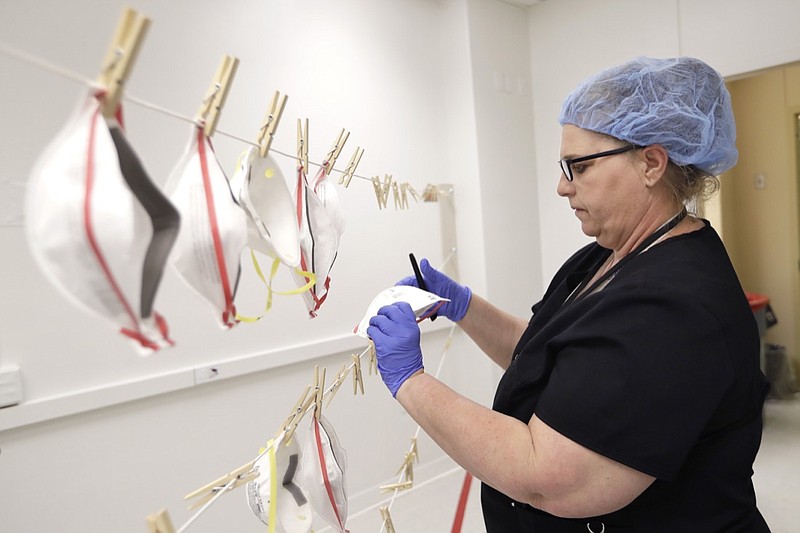NASHVILLE, Tenn. (AP) - Vanderbilt University Medical Center had to scramble for personal protective equipment even before the coronavirus hit. That's because the deadly March 3 tornado that tore through Tennessee took out its distribution center.
"Our supply chain is great at crisis management," said Robin Adkins, a nurse who consults with Vanderbilt on sterile processing and logistics. "We got distribution somewhere else and backup reserve, then COVID hit."
The N95 masks have been the most difficult to come by, Adkins said. In normal times, they are discarded after a single use, but these aren't normal times. Faced with a nationwide shortage of PPE, Vanderbilt at first began sterilizing masks using ultraviolet light. That allowed them to be reused up to three times. More recently, Vanderbilt has started using hydrogen peroxide vapor for sterilization. It can now reuse a single mask up to 10 times, according to the Nashville hospital.
Asked whether the emergency procedures necessitated by COVID-19 might lead to a long-term trend toward more reuse of equipment in general, Adkins said, "Right now there's a lot of out-of-the-box thinking going on in our industry. ... I hope some good process changes come out of this ... because this may not be the only time we have to do this."
Vanderbilt also found a way to "reuse" its valets. Faced with the prospect of laying off about 100 people, the hospital instead retrained them to screen people entering the hospital for symptoms of COVID-19.
Jason Butcher, director of parking and transportation services at the hospital, said he was disheartened to think he was going to have to tell his staff they would not have a paycheck. Then he got a call about having them work as screeners.
"It's a different job parking cars and taking temperatures, but I said, 'Yeah. I think they can do it.'"
The former valets now work at 18 stations throughout the hospital, screening about 10,000 people each day.
In one way, the two jobs are similar, Butcher said. "They still smile and greet people and interact with patients who come in at a tough time in their lives. They're still doing the compassion piece. Instead of cars, it's thermometers."
David Porter had just been at the valet job for two months when the changeover happened. He said he likes being able to help out in the crisis.
"It's very satisfying," Porter said. "I have a true sense of purpose."
For most people, the new coronavirus causes mild or moderate symptoms that clear up within weeks. For some, especially older adults and those with existing health problems, it can cause more severe illness and be life-threatening.
___
The Associated Press contributed to this report
